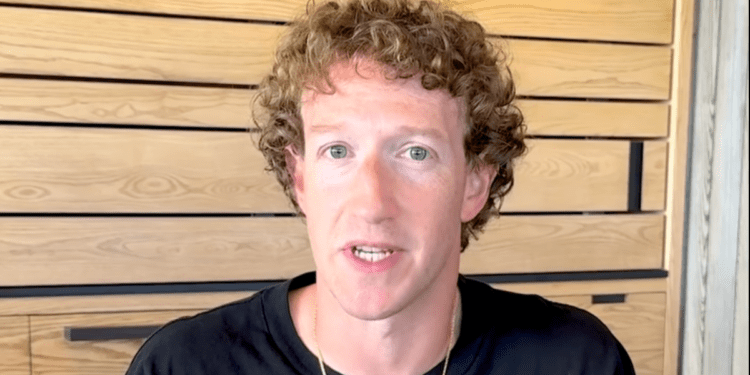Mark Zuckerberg, the CEO of Meta, is set to implement an extensive modification of Facebook’s content moderation strategies within this year. The platform will phase out its fact-checking team in favor of a community-driven notes feature, drawing inspiration from a similar system that was launched on X (previously known as Twitter) back in 2021. Zuckerberg describes these upcoming changes at Meta as a reaction to a “cultural tipping point,” with the goal of minimizing censorship across all social media platforms.
Meta adopts X-style community notes model for fact-checking
On Tuesday, Meta announced the discontinuation of its fact-checking collaborations, transitioning instead to a community-driven notes feature for Facebook, Instagram, and Threads. This new system allows users to identify and add context to misleading or dubious posts, placing the judgment of accuracy in the hands of the community. Zuckerberg criticized the previous fact-checking team, claiming they “undermined more trust than they built,” emphasizing that previous attempts at fostering inclusivity were ineffective and a new method is crucial.
Characterizing its moderation processes as nearly unmanageable and overly intricate, Meta’s shift away from conventional fact-checking aims to create a digital landscape similar to X, prioritizing free expression while minimizing administrative control.
“Like everyone, specialists have their own biases and viewpoints. This was evident in their decisions regarding what to fact-check and the manner of doing so. Consequently, an overwhelming amount of content ended up being subjected to fact-checking that the public recognizes as valid political discourse and debate,” states a Meta press release. “It’s unjust that certain statements can be made on television or within Congress, yet not on our platforms.”
Platforms such as Facebook and Instagram could become centers of harmful content
Platforms like X and Reddit, which primarily rely on community moderation and algorithms, have inadvertently become venues for harmful content and misinformation, leading many users to rethink their engagement in those areas. Meta’s shift may reduce costs and stimulate short-term interest, but it risks fostering a similar environment, undermining the safety and trust that previously characterized its standing. When X revamped its internal policies and moderation tactics under new ownership in 2022, it triggered an unprecedented advertising boycott and an exodus of prominent journalists, public figures, and brands that no longer resonated with the platform’s evolving values.
A Kantar survey disclosed that 26% of marketers plan to cut their expenditures on X in 2025, indicating the largest decline observed across any major international advertising platform. Merely 4% of marketers felt that X advertisements ensure adequate “brand safety.”
Brand safety is vital for digital success: Choose your platforms carefully
In 2025, brand safety is essential for digital success. Selecting where to establish your presence entails understanding not only your target audience but also the core values of the platforms in question. As social media environments continue to merge and splinter, platforms like X and Facebook maintain their influence due to their vast scale while, concurrently, offering opportunities to reevaluate the most suitable venues for sharing your content.
The surroundings in which you communicate reflect the essence of the message itself. This idea, first posited by communication theorist Marshall McLuhan in 1964, suggests the medium is not just a container for content but fundamentally influences its significance and effect. In today’s digital ecosystem, where platform dynamics shape audience engagement and our content-sharing choices, the medium selected is as crucial as the message conveyed.
Meta’s social media platforms are on the verge of significant transformations, with audacious initiatives emerging from various directions. Zuckerberg is not only dissolving Meta’s moderation division but also reintroducing political discourse into users’ feeds, relaxing restrictions on sensitive issues like immigration and gender, and relocating the few remaining content moderation roles to a central hub in Texas. This relocation of several essential operations has been part of Zuckerberg’s overarching strategy for a while. He asserts that the new setting will aid in overcoming the internal biases and issues that have stymied growth in California.
Aligned with what seems to be a more favorable regulatory environment for tech leaders in 2025, this approach signifies Meta’s aspiration to reconnect with a user base it feels has been overlooked. Nonetheless, these adjustments are already causing trepidation internally, with former personnel and critics within the company expressing concern about the far-reaching consequences.
Helle Thorning-Schmidt, a prominent member of Meta’s oversight board, expressed cautious optimism regarding certain aspects of the overhaul in an interview with BBC Radio 4’s Today program. “We observe many cases where hate speech can lead to genuine harm; we will monitor that area very closely,” she stated. When users perceive safety, engagement, and respect, brands can establish deeper, more genuine connections that endure over time.
Reevaluate your digital strategy and establish new meaningful spaces
Meta has firmly established itself as a leader in advertising across all its platforms, providing precise targeting, comprehensive analytics, and access to a massive user base that few rivals can rival. As the platform navigates its dual role as a social center and a driver of community commerce, retaining the allegiance of brands and influencers amidst these transformations will be the forthcoming significant challenge.
As this new vision unfolds, numerous businesses may take advantage of the opportunity to reassess their digital tactics entirely, seeking out new platforms such as Bluesky to engage with fresh audiences and revitalize their content strategies. The platforms we choose to interact with influence how we formulate our messages, and for some, aligning with a different environment might offer the necessary momentum for renewed growth and purpose.


